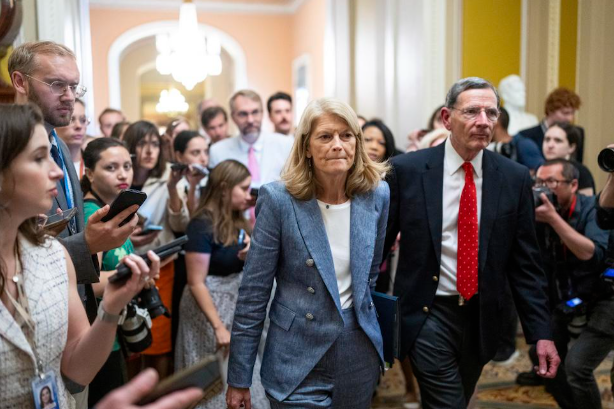Three GOP Senators Oppose Trump’s Domestic Policy Bill as Senate Vote Squeaks Through

Washington, D.C. — In a high-stakes Senate vote on Tuesday, three Republican senators — Thom Tillis (R-NC), Rand Paul (R-KY), and Susan Collins (R-ME) — joined all Senate Democrats in voting against the Republican-led domestic policy bill backed by former President Donald Trump.

Despite the defections, the bill narrowly passed the Senate with a 51-50 vote, thanks to a tie-breaking vote from Vice President JD Vance.
A Delicate Balancing Act
Over several days of intense debate and amendment negotiations, Republican leaders worked to secure just enough support to push the bill through the evenly divided Senate. With all Democrats unified in opposition, Republicans could afford to lose no more than three votes to succeed — and that’s exactly what happened.
“It came down to the wire,” said one GOP aide familiar with the negotiations. “But the leadership knew they had to hold the line at three.”
Why These Three Senators Opposed the Bill
- Sen. Rand Paul opposed the bill due to its trillion-dollar price tag and the increase in the national debt ceiling, consistent with his long-standing libertarian stance on government spending.
- Sen. Susan Collins, considered one of the most moderate Republicans in the Senate, expressed concern about deep cuts to Medicaid and the bill’s impact on healthcare access in her home state of Maine.
- Sen. Thom Tillis, who announced he would not seek re-election in 2026, voted no amid constituent concerns over reductions in federal safety net programs and the potential long-term effects on middle-income families.
What’s in the Bill?
The bill includes:
- Permanent tax cuts favoring higher-income earners
- Expanded deductions for overtime and tipped income
- Funding for immigration enforcement and border infrastructure
- Reductions in Medicaid and SNAP funding
- A partial rollback of green energy tax credits
Next Stop: The House
With Senate passage secured, the legislation now heads to the House of Representatives, where further debate and potential revisions are expected. Opposition is already forming within the House Freedom Caucus and among moderate Republicans who are uneasy with the size of the spending cuts and the projected $3.3 trillion impact on the federal deficit.


